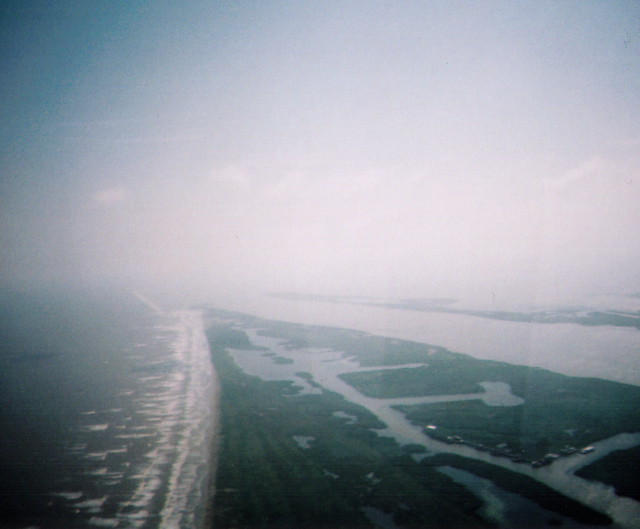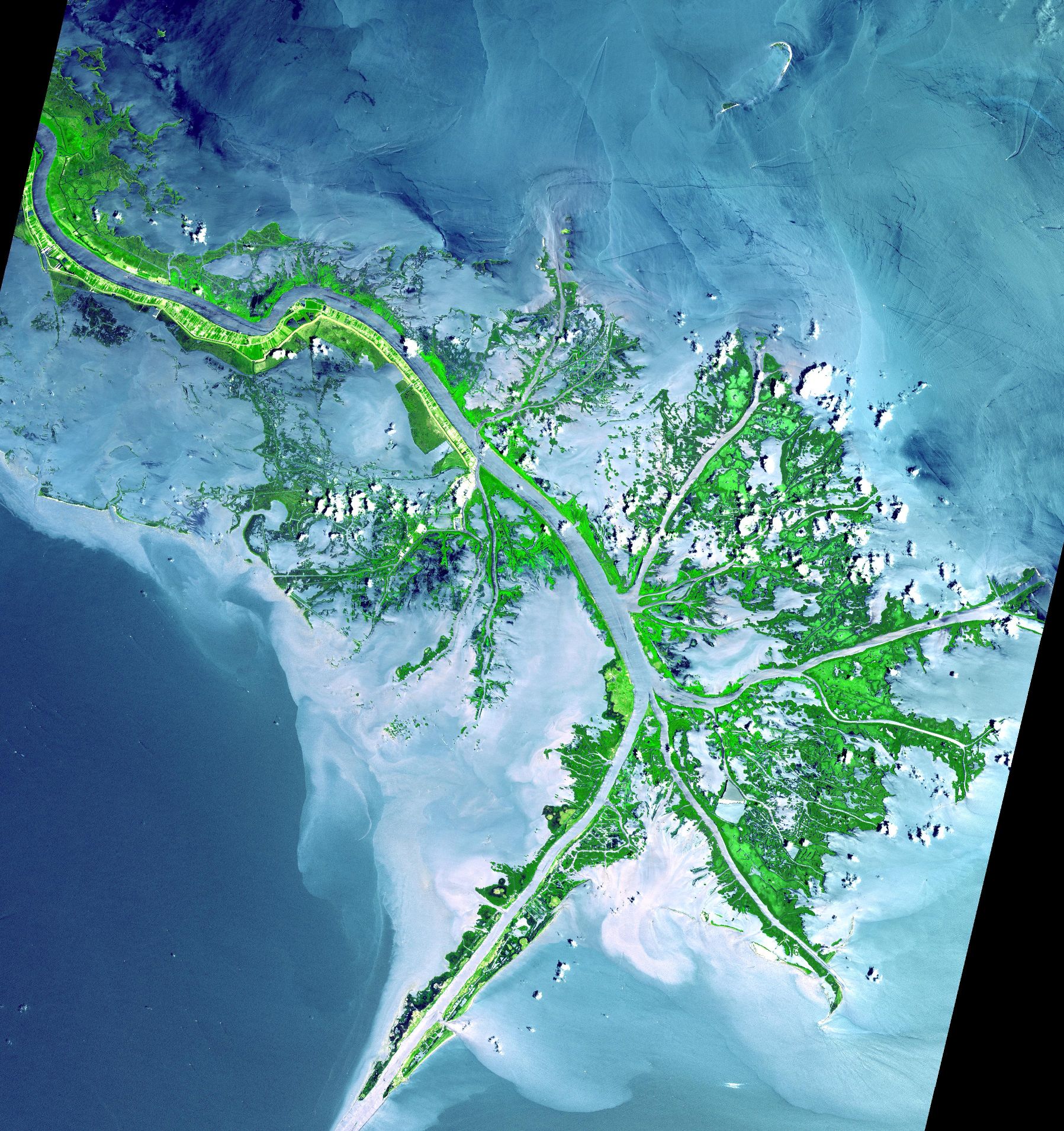I want to tie a few different threads together here. We have the release of Louisiana's 2012 Coastal Master Plan (Large PDF), the expansion of the Panama Canal, the struggles of the Port of New Orleans during low water levels, the BP spill fines, and Louisiana politics.
Mississippi River levels are now so low, barges are grounding (note: this article talks about barges upriver of Baton Rouge). You can notice all sorts of other signs: if you drive across the CCC bridge, you'll notice extra barges around Algiers Point for lightening the load of freighters coming up the river. If you taste the tap water right now, they're putting extra chlorine to combat the low levels. These ultra-low levels happen about once ever 10 years and they are a pain for the Port of New Orleans. The fall, for whatever reason, tends to be the busiest time of year. That's also when river levels are the lowest. Meanwhile, Congress funds the Corps' dredging and asks them to meet 40' depth (which they almost never reach, due to lack of funds). They allocate ~$500 million dredging (don't worry too much about cost; it more than pays for itself in commercial activity). The Port kicks in some extra, but in times like this, they always end up ~$50-100 million short of what they really should have to keep the port completely busy. The other thing is much of that dredging money isn't spent on Southwest Pass (photo below), but instead at Pass a Loutre (a smaller, shallower channel, that, if you ever did a proper economic analysis, it'd say 'dredge more at SW Pass).

The capacity of the Panama Canal will double when the expansion project is complete. Sometime in 2014 (or shortly after), ports that want to recieve traffic will need channels at least 50' deep. After being caught up in Tea Party politics for years (note: dead link), Florida is finally pushing forward with the Deep Dredge project. The Port of New Orleans had a great opportunity to leapfrog Miami and now their window of opportunity may be closing. Meanwhile, Boss Hogg's plan to renovate Gulfport into a Superport has fallen apart (note: dead link). Fortunately, Slabbed has been on the case.
It would be great to kill 3 birds with one stone: restore the coast, promote shipping, and protect New Orleans from hurricanes. There's coalescing around a plan to abandon the lower Bird's Foot, divert the river, and also have a newer, shorter route to the sea for shipping. Dr. Renfro's got an article along those lines here (also, congrats on finishing the PhD; I saw her present at a past TEF as just a PhD student). The diversions will also continue to work, even without constant infusions of major cash (unlike dredging). So, that's what we NEED to be doing. What are we doing instead?
Well, first, we're fighting over the BP spill money. There's also a fight to chip away at the few wetland protection laws there are. Louisiana Legislators want to raid the BP money for use on their own pet projects instead of spending it on coastal projects. Fortunately, we seem to be doing OK at beating that idea back.
Fishers and dredgers oppose Coastal Master Plan. Unfortunately, I see a drift away from the "Engineered Avulsion" idea and towards dredged sediment restoration. What's so bad about dredged sediment diversion? Well, first off, what is it? It's when you dredge a bunch of sediment, put it in a particular place, and it promotes further land growth. Here's an example:
One of the problems with dredged sediment restoration is that it actually does work. The reason that's a problem is it's expensive, it's a one-shot thing (you have to do it over and over) and it only works for a limited area.
Dr. Bahr liked to call the dredging industry, "Louisiana's Military-Industrial Complex." He has a point. They donate tons of money to politicos, have a protected market that's not open to free trade, and just sort of sit there and make money with no innovation. The dredgers love dredged sediment restoration, because it's money in their pocket. The fishermen love it, because it has no impact on fisheries. The problem is it's just not going to be enough. It's a proverbial band-aid on a gunshot wound. I'd hate to see the initial billions go to dredging, none to restoration, and then having to come up with remaining dough ourselves.
So, we have a fight between doing what's needed to save the state from sliding into the ocean (and making the Port of New Orleans a Superport) or in the short-term putting a few nickels in a politically-connected pocket and continuing with business as usual. Which way will it go?
UPDATE- gCaptain article about keeping the MS River dredged.
So, we have a fight between doing what's needed to save the state from sliding into the ocean (and making the Port of New Orleans a Superport) or in the short-term putting a few nickels in a politically-connected pocket and continuing with business as usual. Which way will it go?
UPDATE- gCaptain article about keeping the MS River dredged.


No comments:
Post a Comment